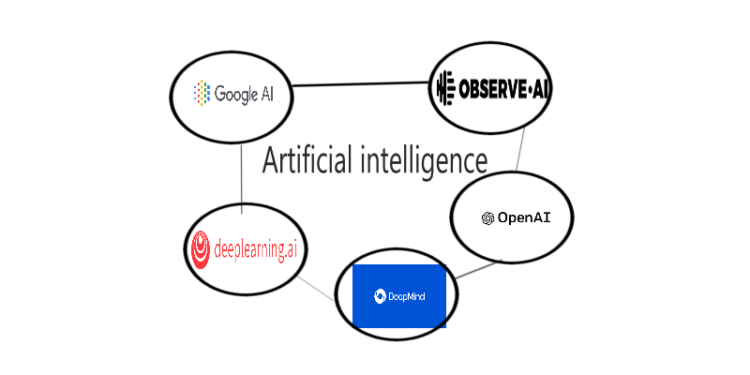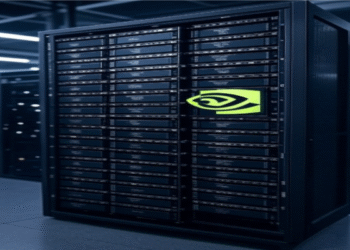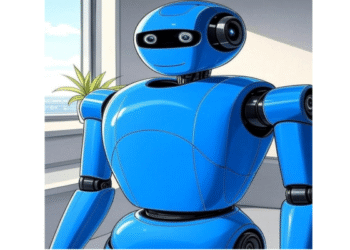Artificial intelligence is simply programming machines to perform intelligent tasks like humans. Artificial intelligence (AI) is at the heart of the contemporary technological revolution. While there are fears surrounding its application to modern life, it has received wide acceptance from global users.
We can’t, however, ignore that it has become a part of our everyday lives. Most AI is designed to perform typical tasks involving some degree of problem-solving and decision-making that humans would normally do.
It is transforming industries such as hospitality, politics, marketing, health, sales, art and design, and, to a greater degree, software development, by generating new insights to improve performance and create new products.
We’ve put together some of the most promising AI companies to look out for, along with their use cases across different industries.
1.Open.Ai
OpenAI is an artificial intelligence research company with a mission to create artificial general intelligence (AI) to benefit humanity.
Founded in December 2015 in San Francisco, USA, the company has created several programs powered by artificial intelligence and machine learning algorithms that allow computers to do all kinds of things.
It is capable of generating human-like text and has a wide range of applications, including language translation, language modeling, making robot hands, and creating text for applications such as chatbots.
Open.ai has a funding valuation of $1 billion (corporate round). Its products include DALL-E, GPT-3, GPT-2, OpenAI Five, and ChatGPT.
DeepMind Technologies
DeepMind Technologies Ltd. is a UK-based company that solves problems with artificial intelligence
Founded in September 2010, the company was acquired by Google in 2014 and is now part of the Google Alphabet Group.
Deep reinforcement learning for artificial intelligence algorithms and neural networks at DeepMind has been used in both research and application contexts. From playing video
games like those used by humans to computers accessing external memory to mimic the short-term memory of the human brain.
The company has made headlines for some of its famous AI feats, such as AlphaGo—a program that became the world Go champion in a five-game match after beating a professional human Go player; AlphaFold—a solution to scientific biology challenges; and Google Maps.
As DeepMind CEO Demis Hassabis said in an interview with the Guardian, “What the company is working on is likely to be a universal solution to any problem.”
Observe.Ai
Founded in July 2017, and headquartered in the San Francisco Bay Area, USA, Observe.ai is an enterprise AI company that provides a voice AI platform for new-age call centers.
The company aims to address the challenge faced by many call centers by applying the power of artificial intelligence to enable their customer-facing teams to collect more complete data about customer needs so that they can find a way to meet them.
Its advanced data analytics and real-time feedback give agents powerful products and tools to deliver a better customer service experience.
The company’s Series C valuation is $214 million.
DeepLearning.Ai
Deeplearning.ai is a company that explores the frontiers of artificial intelligence.
The company was founded in 2017 and has a system that uses machine learning and artificial intelligence (AI) that mimics the way humans acquire certain types of knowledge, learning from large amounts of data through artificial neural networks and algorithms inspired by the human brain.
DeepLearning networks learn by discovering complex structures in the data they encounter. By building computational models consisting of multiple processing layers, networks can create multiple levels of abstraction to represent data.
It supports many tasks such as robotics, virtual assistance, translations, vision for driverless delivery trucks, drones, autonomous cars, chatbots, service bots, image coloring, facial recognition, medicine and pharmaceuticals, agriculture, personalized shopping, and entertainment.
Google.Ai
Google AI was announced in 2017 at the second Google I/O event by CEO Sundar Pichai.
It is the artificial intelligence (AI) research and development branch of Google for its artificial intelligence applications.
Its technology allows computers to perform a wide variety of advanced functions and process orders. It can see, translate, and understand spoken and written language, analyze data, and make recommendations for requesting information or booking appointments.
Google AI’s products include Vertex AI, Google’s unified platform for building, deploying and managing machine learning models. APIs such as speech-to-text and CCAI to automate call centers and virtual agents, and industrial solutions for healthcare, such as improving detection algorithms.
Its other products and features include Google Lens, Smart Reply for Gmail, and Google Assistant for iPhone.
Conclusion
Artificial intelligence is undoubtedly the most exciting frontier of developing technology. While most of the above-mentioned companies are applying AI in different systematic ways, the end user will be provided with many tools to automate their work.
Whether these companies are using AI to make their existing operations more robust or are profiting directly from it by selling hardware or software products or services, there is no doubt that AI is reshaping many industries around the world. In the long run, it will become the foundational technology for the majority of future products.














